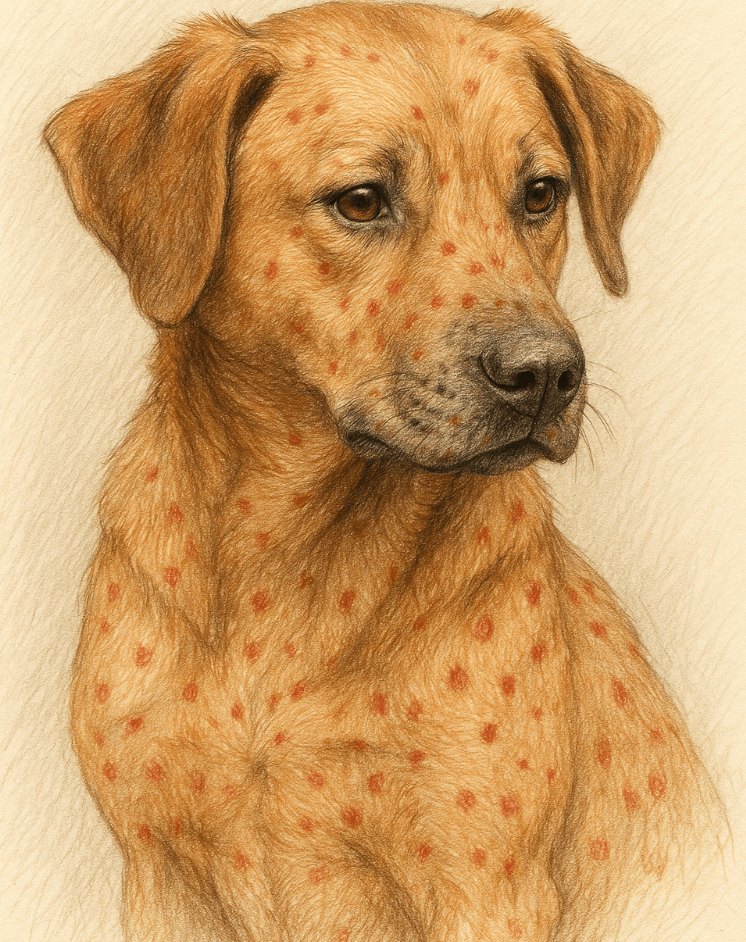Understanding Immune Mediated Thrombocytopenia in Dogs
Immune Mediated Thrombocytopenia (IMT) is a serious and potentially life-threatening condition that affects dogs. It occurs when the immune system mistakenly attacks and destroys platelets, which are essential for blood clotting. Without enough platelets, dogs are at risk of excessive bleeding, bruising, and other complications. This autoimmune disorder can be challenging to diagnose and manage, but with prompt veterinary care and proper treatment, many dogs can recover and lead healthy lives. In this blog post, we’ll explore the causes, symptoms, diagnosis, and treatment options for IMT, as well as tips for supporting your dog through recovery.
Expert Opinion on ITP Classification
ITP can be classified as either a primary or secondary disease. In primary, or idiopathic, ITP, there’s no known reason why the immune system is destroying the body’s platelets. In secondary ITP, the immune system destroys platelets in response to an underlying condition, such as cancer, infection, or toxin or drug exposure.
Signs and Symptoms of Immune Mediated Thrombocytopenia in Dogs
Recognizing the signs of Immune Mediated Thrombocytopenia early is crucial for ensuring timely treatment. Here are some common symptoms to watch for in your dog.
Unexplained Bruising:
Small red or purple spots on the skin, gums, or belly may indicate internal bleeding due to low platelet counts.Bleeding from Gums or Nose:
Spontaneous nosebleeds or gum bleeding can signal a problem with blood clotting.Blood in Urine or Stool:
Dark, tarry stools or red-tinged urine are warning signs of internal hemorrhage.Lethargy and Weakness:
Dogs with IMT often appear unusually tired or weak due to anemia or blood loss.Prolonged Bleeding from Minor Wounds:
Even small cuts or scratches may take much longer than usual to stop bleeding.
If you notice any of these symptoms, it’s essential to consult your veterinarian immediately. Early intervention can make a significant difference in your dog’s prognosis.

Causes and Risk Factors of Immune Mediated Thrombocytopenia
While the exact cause of Immune Mediated Thrombocytopenia isn’t always clear, certain factors may contribute to its development. Understanding these triggers can help dog owners take preventive measures where possible.
Autoimmune Disorders:
The immune system mistakenly identifies platelets as foreign invaders and attacks them.Medications or Vaccines:
Some drugs or vaccines may trigger an abnormal immune response in sensitive dogs.Underlying Health Conditions:
Diseases like cancer, infections, or hormonal imbalances can increase the risk of IMT.Genetic Predisposition:
Certain breeds, such as Greyhounds and Cocker Spaniels, may be more prone to developing IMT.Environmental Stressors:
Exposure to toxins, extreme stress, or changes in routine might exacerbate immune dysfunction.
By identifying potential risk factors, veterinarians and pet owners can work together to minimize triggers and support overall health.
Check this guide 👉Dog Blood in Urine Causes: Best 7 Expert Tips!
Check this guide 👉Does Dog Blood Work Show Cancer? Best 7 Expert Tips!
Check this guide 👉Understanding the PCT Dog Blood Test: Best 7 Tips!
Symptoms of IMT in Dogs | Diagnostic Tests for IMT |
|---|---|
Unexplained bruising on skin or gums | Complete Blood Count (CBC) |
Nosebleeds or gum bleeding | Platelet count measurement |
Blood in urine or stool | Bone marrow biopsy |
Lethargy and weakness | Coagulation profile testing |
Prolonged bleeding from minor wounds | Imaging tests (X-rays, ultrasounds) |
Treatment Options for Immune Mediated Thrombocytopenia
Treating Immune Mediated Thrombocytopenia requires a comprehensive approach tailored to each dog’s specific needs. Here are some common treatment strategies used by veterinarians.
Immunosuppressive Medications:
Drugs like corticosteroids are often prescribed to suppress the immune system and reduce platelet destruction.Platelet Transfusions:
In severe cases, transfusions may be necessary to replenish critically low platelet levels quickly.Supportive Care:
Intravenous fluids, nutritional support, and rest help stabilize dogs during recovery.Monitoring and Follow-Up:
Regular check-ups and blood tests ensure the treatment plan is working effectively.Addressing Underlying Causes:
Treating concurrent illnesses or infections can improve outcomes for dogs with IMT.
With consistent care and monitoring, most dogs respond well to treatment and regain normal platelet levels over time.
Tips for Supporting Your Dog During Recovery
Recovering from Immune Mediated Thrombocytopenia can be a lengthy process, but there are ways to support your dog’s healing journey. These tips can help ease their recovery and improve their quality of life.
Minimize Physical Activity:
Restrict running, jumping, or rough play to prevent injuries that could lead to bleeding.Provide a Stress-Free Environment:
Keep your dog calm and comfortable to avoid triggering further immune responses.Administer Medications as Directed:
Stick to the prescribed dosage and schedule to ensure effective management of the condition.Watch for Warning Signs:
Monitor your dog closely for any new symptoms or worsening conditions and contact your vet promptly.Maintain a Balanced Diet:
Feed nutrient-rich food to boost your dog’s immune system and overall health.
By following these guidelines, you can create a supportive environment that promotes healing and reduces stress for your furry friend.
Preventive Measures to Reduce the Risk of IMT
While not all cases of Immune Mediated Thrombocytopenia can be prevented, taking proactive steps can lower the risk. Consider these preventive measures to safeguard your dog’s health.
Regular Veterinary Check-Ups:
Routine exams allow vets to detect potential issues before they escalate into serious problems.Avoid Over-Vaccination:
Work with your vet to create a vaccination schedule tailored to your dog’s needs and lifestyle.Limit Exposure to Toxins:
Keep household chemicals, pesticides, and harmful substances out of reach.Provide a Balanced Diet:
High-quality nutrition strengthens the immune system and reduces susceptibility to illness.Monitor for Early Symptoms:
Stay vigilant for signs of unusual bruising, lethargy, or bleeding, especially in high-risk breeds.
Taking these precautions can significantly reduce the likelihood of IMT affecting your dog.
Common Misconceptions About IMT
There are several misconceptions surrounding Immune Mediated Thrombocytopenia that can lead to confusion among pet owners. Clarifying these myths helps foster better understanding and care.
Myth: IMT Only Affects Older Dogs:
While older dogs are at higher risk, younger dogs can also develop the condition.Myth: All Cases Are Fatal:
With proper treatment, many dogs achieve remission and live happily for years afterward.Myth: Vaccines Always Cause IMT:
While rare reactions can occur, vaccines rarely cause IMT directly.Myth: IMT Can Be Treated at Home Alone:
Professional veterinary care is essential for managing this complex condition.Myth: IMT Is Contagious:
IMT is an autoimmune disorder and cannot be transmitted between animals or humans.
Separating fact from fiction empowers pet owners to make informed decisions about their dog’s health.
How to Advocate for Your Dog’s Health During Diagnosis
Navigating a suspected case of Immune Mediated Thrombocytopenia can feel overwhelming, but being an advocate for your dog ensures they receive the best care possible. Here’s how you can play an active role in their diagnosis and treatment.
Ask Questions:
Don’t hesitate to ask your vet about test results, treatment options, and expected outcomes.Seek a Second Opinion:
If unsure about a diagnosis or treatment plan, consulting another veterinarian can provide clarity.Keep Detailed Records:
Document symptoms, medications, and progress to share with your vet during follow-up visits.Stay Informed:
Research reputable sources to educate yourself about IMT and related conditions.Be Observant:
Pay close attention to changes in your dog’s behavior or physical condition, as these details matter greatly to your vet.
Advocacy and communication are vital tools in ensuring your dog receives the care they deserve.
Frequently Asked Questions About Immune Mediated Thrombocytopenia in Dogs
What is Immune Mediated Thrombocytopenia?
It’s a condition where the immune system attacks platelets, leading to reduced blood clotting ability.
Is IMT curable?
While not always “curable,” most dogs achieve remission with proper treatment and management.
How long does treatment last?
Treatment duration varies, but it often involves weeks to months of medication and monitoring.
Can diet affect my dog’s recovery?
Yes, a balanced diet rich in vitamins and minerals supports overall health and recovery.
Are certain breeds more prone to IMT?
Breeds like Greyhounds, Cocker Spaniels, and Poodles may have a higher risk, but any dog can develop it.
Empowering Pet Owners to Manage Immune Mediated Thrombocytopenia
Immune Mediated Thrombocytopenia is a challenging condition, but with knowledge, vigilance, and veterinary support, dog owners can navigate this journey successfully. Recognizing symptoms early, adhering to treatment plans, and providing a nurturing environment are key to helping your dog recover. Remember, every dog is unique, and their resilience often surprises us. By staying informed and proactive, you can ensure your beloved companion receives the best care possible and continues to thrive despite the challenges posed by IMT.
Keeping Your Dog Safe This Summer: Best 7 Expert Tips! – Learn how to protect your pup from heatstroke, dehydration, and more this summer. Stay safe!
When Was Cat Food Invented? Best 7 Expert Tips! – Discover the history, key milestones, and evolution of cat food from scraps to scientifically balanced diets.
When Was Dog Food Invented? Best 7 Expert Tips! – Discover the origins, evolution, and milestones of dog food, and how it transformed pet nutrition over time.
Kintamani Dutch Shepherd Mix: Best 7 Expert Tips! – Discover the perfect blend of loyalty, agility, and charm with this unique hybrid. Learn expert care tips now!




